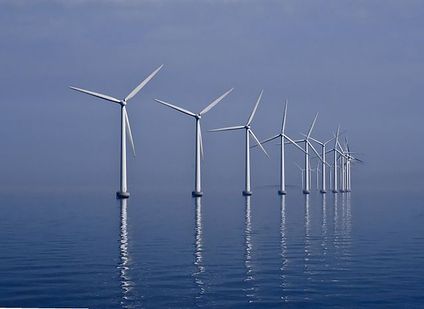m (→Energy poverty: adding video) |
m (→Interwiki links: video) |
||
| (One intermediate revision by the same user not shown) | |||
| Line 81: | Line 81: | ||
== Interwiki links == | == Interwiki links == | ||
Wikipedia: [[wikipedia:Sustainable energy|Sustainable energy]], [[wikipedia:Microgeneration|Microgeneration]], [[wikipedia:Community solar farm|Community solar farm]], [[wikipedia:Appropriate_technology#Energy_generation_and_uses|Energy generation and uses]], [[wikipedia:Energy harvesting|Energy harvesting]], [[wikipedia:Efficient energy use|Efficient energy use]], [[wikipedia:Cogeneration|Cogeneration]], [[wikipedia:District heating|District heating]], [[wikipedia:District cooling|District cooling]], [[wikipedia:Energy audit|Energy audit]], [[wikipedia:Energy hierarchy|Energy hierarchy]], [[wikipedia:Stand-alone power system|Stand-alone power system]], [[wikipedia:Category:Energy conservation|Energy conservation]] (category), [[wikipedia:Category:Renewable energy|Renewable energy]] (category) | Wikipedia: [[wikipedia:Sustainable energy|Sustainable energy]], [[wikipedia:Microgeneration|Microgeneration]], [[wikipedia:Community solar farm|Community solar farm]], [[wikipedia:Appropriate_technology#Energy_generation_and_uses|Energy generation and uses]], [[wikipedia:Energy harvesting|Energy harvesting]], [[wikipedia:Efficient energy use|Efficient energy use]], [[wikipedia:Cogeneration|Cogeneration]], [[wikipedia:District heating|District heating]], [[wikipedia:District cooling|District cooling]], [[wikipedia:Energy audit|Energy audit]], [[wikipedia:Energy hierarchy|Energy hierarchy]], [[wikipedia:Stand-alone power system|Stand-alone power system]], [[wikipedia:Category:Energy conservation|Energy conservation]] (category), [[wikipedia:Category:Renewable energy|Renewable energy]] (category) | ||
{{#widget:YouTube|id=30ysBzz6kDU}} | |||
Solarcooking, wikia.com: [http://solarcooking.wikia.com/wiki/GoSol.org GoSol.org] | |||
== External links == | == External links == | ||
Revision as of 17:00, 31 May 2016
Template:CEnews
Community energy is considered here in the context of the wider topic of Sustainable energy.
Definition of sustainable energy
Sustainable energy is defined, for the purposes of this article, as energy which, in its production or consumption, has minimal negative impacts on human health and the healthy functioning of vital ecological systems, including the global environment, and that can be supplied continuously to future generations on earth. Such forms of energy include, but are not limited to the following: solar thermal, solar photo-voltaic (PV), wind, hybrid wind-solar, fuel cell, geothermal, small-scale (mini- and pico-) hydro-electric, tidal and wave. This definition specifically excludes nuclear and fossil fuel energy or their “improvements” as an option thereof. [1]
What communities can do
- Microgeneration
- Community energy projects
- Energy awareness weeks
- Promoting energy efficiency
- Energy audits
- Fuel poverty Projects
- Energy Credit Unions
- Community owned energy sources
- Sustainable hydropower
- Community solar gardens
Why it matters
Sustainable energy is about renewable, clean or green energy, and energy efficiency or saving energy. (longer article needed)
It doesn´t include nufo (nuclear or fossil fuel) energies.
Energy poverty
Energy poverty is lack of access to modern energy services. It refers to the situation of large numbers of people in developing countries whose well-being is negatively affected by very low consumption of energy, use of dirty or polluting fuels, and excessive time spent collecting fuel to meet basic needs. It is inversely related to access to modern energy services, although improving access is only one factor in efforts to reduce energy poverty. Energy poverty is distinct from fuel poverty, which focuses solely on the issue of affordability.
According to the Energy Poverty Action initiative of the World Economic Forum, "Access to energy is fundamental to improving quality of life and is a key imperative for economic development. In the developing world, energy poverty is still rife. Nearly 1.6 billion people still have no access to electricity, according to the International Energy Agency (IEA).". As a result of this situation, a new UN initiative has been launched to coincide with the designation of 2012 as the International Year for Sustainable Energy for All, which has a major focus on reducing energy poverty. W
Resources
Citizens data initiative
In developing countries, more than 1 billion people have no access to reliable electricity and more than 2.5 billion people rely on polluting and inefficient biomass and coal use for cooking and heating. [2]
Maps
Networks
Creative Commons
LeNSes (Learing Network on Sustainable energy systems), multi-polar Network for curricula and lifelong learning capacity development focused on System Design for Sustainable Energy for All. It is a 3 year project (Oct 2013 - Oct 2016) funded by the European Commission (ACP-EU Edulink II), involving 3 design schools in Europe and 4 in Africa.
Other
100% Renewable Energy Cities & Regions Network, iclei.org
micro hydropower on Yahoo Groups
Sustainable ebergy on pinterest
Quotes
"My passion isn’t for hydro, it’s for people taking control of their own futures." Ann Harding, Settle Hydro [3]
Video
See also
- local information can be found, or shared, via our many location pages
- Climate action
- Environment quality
- Localism
- Sustainable transport activism
Interwiki links
Wikipedia: Sustainable energy, Microgeneration, Community solar farm, Energy generation and uses, Energy harvesting, Efficient energy use, Cogeneration, District heating, District cooling, Energy audit, Energy hierarchy, Stand-alone power system, Energy conservation (category), Renewable energy (category)
Solarcooking, wikia.com: GoSol.org
External links
- WISIONS
- World Alliance for Decentralized Energy raises the profile of all forms of decentralized energy or distributed generation including renewable technologies such as solar PV and small scale wind power. W
References
Template:Attrib sca ref
- ↑ Nuclear power is sometimes presented as a sustainable, clean energy source. However, “(a)s long as the limited supply of rich uranium ores hold out, the nuclear energy fuel chain does indeed, after about 7 years of operation, produce less Template:CO2 than a gas-burning plant. But when the uranium content of ores gets below around 0.05%, it becomes doubtful if nuclear power will lead to the production of any less Template:CO2 than just burning fossil fuel directly.” (IVEM Centre for Energy & Environmental Studies, University of Groningen, Netherlands, April 2001). Further, “at all stages of nuclear power generation, nuclear energy produces substantial amounts of waste and environmental pollution (from uranium mining tailings through to spent nuclear fuel, plutonium, and other highly radioactive wastes). [Although the nuclear reactor of a nuclear power station does not, in itself, produce any Template:CO2,] the nuclear fuel chain is a significant source of carbon dioxide emissions; it causes radioactive contamination of the air, water and land…and encourages the proliferation of nuclear weapons…” (Pacific News Bulletin, January 2001.)
- ↑ wwf.org.uk
- ↑ Living with rats, March 18 2010